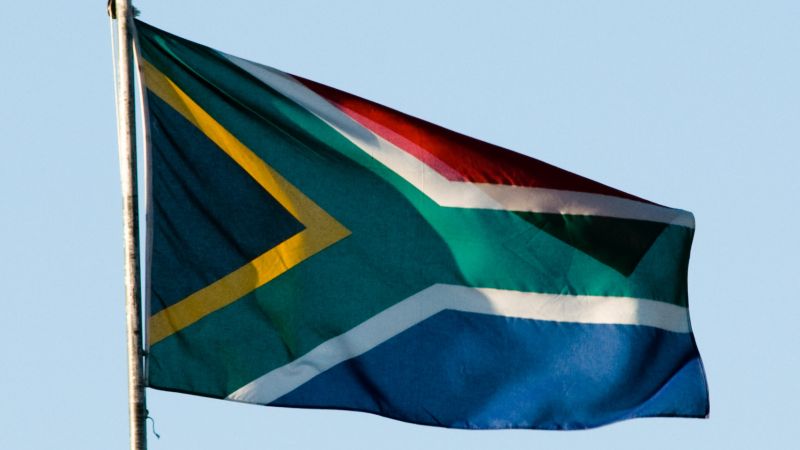With stablecoins gaining traction and regulation improving, African merchants may be nearing a crypto tipping point. Here’s why 2026 could mark a shift from hesitation to adoption.
#Recession: South Africa’s politicians blast the ANC after GDP shrinks

There’s some bad news today, South Africa. The nation has fallen into a technical recession after its latest gross domestic product (GDP) figures were released today.
The GDP shrunk for the second quarter in a row in 2018 — a key determining factor when describing a technical recession. In Q1 2018, economic activity dipped by 2.6%. In Q2 2018, it reduced by a further 0.7%.
Agriculture landed the heaviest blow, falling nearly 30% quarter-over-quarter. Transport (-4.9), Trade (-1.9%) and Government (-0.5%) were the other biggest sandbags on the economy.
Decline in Q2:2018 #economic activity was driven by a drop in #agriculture, #government & #manufacturing industries. #Mining, #construction & #electricity industries recorded positive growth in Q2:2018 #StatsSA #GDP Q2:2018 =-0,7% q/q https://t.co/8VC3RK1Zvj pic.twitter.com/zZKqicQVmh
— Stats SA (@StatsSA) September 4, 2018
It’s the first time South Africa has faced a technical recession since Q4 2016/Q1 2017.
The South African #economy slipped into a #Recession as economic activity declined by 0,7% in Q2:2018 q/q after a 2,6% decline in Q1:2018 #StatsSA #GDP https://t.co/KjOdmHB0yN pic.twitter.com/aBnPccETmP
— Stats SA (@StatsSA) September 4, 2018
#Recession, #economy and #gdp all began trending across Twitter in South Africa on Tuesday afternoon, as the news sunk in. Combined with the ailing rand, the volatile petrol price and the ongoing land reform issues, Twitter users weren’t in a good mood.
Speaking of the ailing rand…
Dollar vs Rand : R15.23
Euro vs Rand : R17.61
Pound vs Rand : R19.53#Recession pic.twitter.com/wQOxFVU3eA— Man’s Not Barry Roux (@AdvBarryRoux) September 4, 2018
Parties slam the ANC
South Africa’s political heavyweights lead the discussion, taking aim at the ANC for its governance. The IFP was one of the first parties to voice its opinion.
“SA’s economic #recession a result of ANC policy failure. What is fundamentally clear is that since the ANC came out at NASREC & the subsequent elevation of Ramaphosa to high office we have not seen change, nothing but statements of intent and placatory remarks,” said its national spokesperson Mkhuleko Hlengwa.
“SA’s economic #recession a result of ANC policy failure. What is fundamentally clear is that since the ANC came out at NASREC & the subsequent elevation of Ramaphosa to high office we have not seen change, nothing but statements of intent and placatory remarks” @MkhulekoHlengwa
— Inkatha Freedom Party (@IFPinParliament) September 4, 2018
DA leader Mmusi Maimane called the news “an explicit vote of no confidence in the ANC”.
South Africans, we are in a #recession for the second time in 2 years.
GDP growth for Q1 2018 ⬇ 2.6%
GDP growth for Q2 2018 ⬇ 0.7%“This is an explicit vote of no confidence in the ANC govt & its ability to create jobs & prosperity for all South Africans.” – @MmusiMaimane
— Democratic Alliance (@Our_DA) September 4, 2018
Using the hashtag #RamaReality, DA chief whip John Steenhuisen was more brazen, calling out state capture and “rampant looting”.
The effects of ANC state capture, EWOC and rampant looting are now being felt by our citizens as our economy slips into recession #RamaReality
— John Steenhuisen MP (@jsteenhuisen) September 4, 2018
Former secretary general of COSATU Zwelinzima Vavi called for the “structural deficiencies” in the economy to be addressed.
If this was not so tragic we would say we told you so!Even with growth we won’t solve inequality, poverty&unemployment without addressing the structural deficiencies of the economy!Changing labels without changing the medicines will change nothing! @Fin24 https://t.co/ZgtwyfFQSA
— Zwelinzima Vavi (@Zwelinzima1) September 4, 2018
The public’s opinion
President Cyril Ramaphosa’s honeymoon period is now absolutely over, as many users blamed his leadership for the recession.
“Ramaphosa sold us all a lemon. And then increased VAT on lemonade,” tweeted Simon Grindrod.
Ramaphosa sold us all a lemon. And then increased VAT on lemonade. #Recession #Rand #Ramaphosa
— Simon Grindrod (@SimonPGrindrod) September 4, 2018
#Ramaphoria just turned into Ramaphobia #recession
— Nkosinathi Shazi (@NkosinathiShazi) September 4, 2018
Not everyone was blaming President Cyril Ramaphosa or the ANC in its current state though. Many looked at former President Jacob Zuma’s administration as the source of the problems.
We are now reaping the rewards of Zuma’s criminal cartel that was in charge of our economy for more than 9 years. #Recession pic.twitter.com/s0toJdmpx2
— Native – Olwethu Sipuka (@osipuka) September 4, 2018
SA is in a #recession because of Zuma and the ANC (mainly the ANC) for 8 years of no policy and I mean no policy that has been implemented that has grown, that has done anything to improve business. Th ANC will spin it as Global effects but it’s all local, all ANC.
— Supreme Leader Da’en (@Dslartibartfast) September 4, 2018
But others took aim at both leaders.
#Recession thanks to @MYANC under the leadership of Zuma and Ramaphosa. pic.twitter.com/P1A3510E8M
— Afrika First(Nokovic) (@ramoroaswi) September 4, 2018
But many in South Africa didn’t care who was to blame. Some predicted that the worst is yet to come for the country’s citizens.
It’s still going to get rough, this is only the beginning! #recession
— Sam Mrembula (@SamMrembula) September 4, 2018
“Lots of people are about to lose their jobs, kicked out of school, die due to lack of medication supply and worse the crime is about to breakthrough the ceiling… SA is gonna go through a lot because of this,” tweeted one user.
Lots of people are about to lose their jobs, kicked out of school, die due to lack of medication supply and worse the crime is about to breakthrough the ceiling… SA is gonna go through a lot because of this #recession pic.twitter.com/irQORE3MbB
— Mr Caplin Mswati Mbamba🇸🇿 (@mzansi_savage) September 4, 2018
Feature image: Chris Eason via Flickr (CC 2.0 BY)


